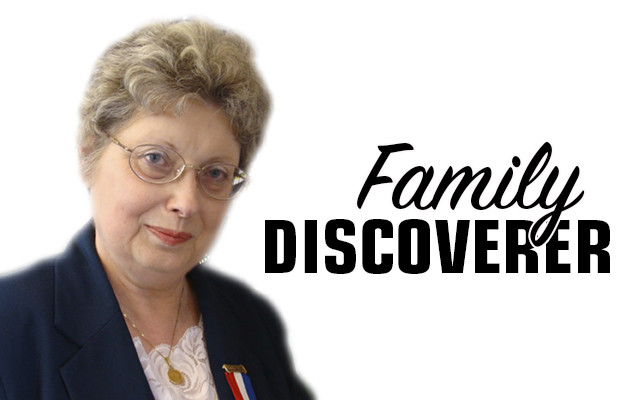
Irish ties
By Nancy Battick
I was recently asked about researching Irish ancestors in the “old country.” With St. Patrick’s Day approaching in March, perhaps it’s a good time to offer advice about this.
Certainly, there are a good many Irish descendants in the United States. Fully 10 percent of all Americans share some Irish ancestry. In this column I’m not dealing with Ulster Scots who were Scottish, not Irish, or the Anglo-Irish who came from the Pale around Dublin. The saying “beyond the Pale” referred to the rest of Ireland.
In order to stand a chance to locate Irish ancestors in Ireland, you need to know the county and village or parish of origin. If you don’t know these, are there any places to look? Yes, let’s examine a few.
Before moving to old country researching, you need to mine every possible nugget of information available in American records. Do you know when your ancestors arrived and where they landed and where they lived? Look for ship passenger record lists, which named a passenger’s departure port and often the last residence. Check for naturalization documents, which often named an applicant’s birthplace.
If your ancestors were Catholic, check for church records. Look for a church near their U.S. home, but keep in mind that in larger cities there were often ethnic churches — French, Polish, German, for example — so check for an Irish Catholic church. If that church is no longer in existence, check with the diocesan office to find where the records are housed. Church records can hold the information you need, particularly marriages, baptisms, and deaths.
Vital records in town offices may also help. Check federal and state censuses to track where your ancestors may have lived and look for nearby relatives or friends. If you’ve lost touch with the descendants of an ancestor’s siblings, track those lines. Someone may have a family bible or information on where the family originated. There are also Irish fraternal organizations and societies to check. Draft registrations sometimes had places of births. Also, check newspapers, especially if there was an ethnic one in your ancestor’s community.
To learn more about resources in Ireland, start with FamilySearch.org, go to search, scroll down to Wiki, and enter Ireland. There you’ll not only read about Irish history, but resources including tax records. Cyndi’s list also has links to Irish resources and groups. Social media groups can offer tips in researching. The Irish Family History Center in Dublin is the gold standard of old country research. But, again, you need to know the origin of your ancestors.
Finally, be aware that many Irish given and surnames were common. Make sure you’re researching your own ancestor not someone with the same name. There may be several Bridget Murphys in a single town. Be sure to do your best to identify which might be yours.
In searching for Irish ancestors follow every possible clue and source. One of those breadcrumbs may yield what you need to move your search to Ireland. Best of luck.
Columnist Nancy Battick of Dover-Foxcroft has researched genealogy for over 30 years. She is past president of the Maine Genealogical Society, author of several genealogical articles and co-transcribed the Vital Records of Dover-Foxcroft. Nancy holds an MA in History from UM and lives in DF with her husband, Jack, another avid genealogist. Reader emails are welcome at nbattick@roadrunner.com.